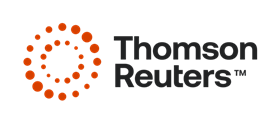(Sponsored content)
Generative artificial intelligence (GenAI) has brought a new wave of opportunities to the legal profession, opening doors to greater efficiency and innovation. Its rapid development has also raised questions. As legal professionals are presented with more options and new technologies, they now face the important task of understanding how GenAI can be seamlessly — and ethically — incorporated into their daily operations.
Addressing ethical challenges
Biases in AI systems
One of the primary ethical concerns surrounding GenAI in legal practice is bias. AI algorithms are often trained on historical data, which can inadvertently carry over existing biases. This can pose a significant issue, as fairness is crucial in the legal industry, but regular audits and updates to the training data can help reduce this risk. Overall, legal professionals should remain vigilant and ensure their tools are powered by professional-grade AI capabilities and trusted authority.
Transparency, trust, and accountability
Transparency helps maintain integrity in the legal profession, and this extends to AI systems that contribute to any decision-making processes. For example, if an AI system recommends sentencing guidelines, any hidden biases could lead to unfair results.
Technology providers should also be open about the role AI plays in their products. Many firms can be hesitant to fully embrace AI features if they aren’t confident in how these solutions are implemented. Providers who offer clear guidelines and regulations for their systems will build a deeper sense of trust, leading to more easily integrating GenAI into the firm’s existing tools and workflows.
Safeguarding privacy and confidentiality
GenAI systems must adhere to strict data privacy regulations, which safeguard sensitive client information against breaches and unauthorised access. AI providers should be proactive in taking measures that include data encryption, secure data storage, and rigorous access controls.
While the UK currently lacks specific legislation on AI, the EU’s AI Act is taking a more formalised approach, and firms must stay informed about evolving national and international regulations and codes of conduct. Guidance from the Solicitors Regulation Authority emphasises the need to:
- Protect sensitive information
- Hold firms accountable for AI-generated errors
- Ensure staff understand and can explain AI systems
- Inform clients about AI usage in their cases
- Stay aware of different regulations in all jurisdictions
To tackle these challenges, firms should consider developing their own ethical guidelines for AI use, focusing on its role in clerical tasks and research rather than as a final decision-maker.
Establishing ethical boundaries
Every firm needs to set its own ethical boundaries when it comes to using GenAI. It’s important to decide which tasks are suitable for AI and which should remain under human control. While AI can handle document generation and research efficiently, it shouldn’t be the final decision-maker in legal matters.
Overall, AI should be viewed as a powerful assistant that enhances our capabilities, not a replacement for human judgement. Lawyers need to verify AI-generated results to ensure accuracy and avoid potential malpractice issues. Having a robust peer review and fact-checking system also ensures that AI tools don’t compromise the quality of legal services.
Embracing change with confidence
GenAI will continue to play an increasingly significant role in legal work – and so will the ethical considerations of using AI. Integrating AI into legal workflows can bring numerous benefits, including more time to focus on strategic and creative tasks and the possibility for an improved work-life balance. But first, legal professionals must take the proper steps to ensure that the use of AI aligns with their core values.

As technology evolves within the legal industry, those who adapt early will find themselves better positioned to meet the demands of a rapidly changing market. Don’t wait: see today how Thomson Reuters CoCounsel can be your indispensable legal assistant.































1 Reader's comment